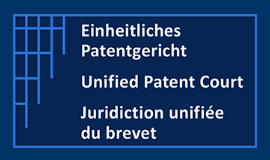A preparatory training for UPC appointed judges was launched yesterday in Budapest.
 According to an announcement on the UPC’s website, the legally and technically qualified judges of the Court are participating in the training, which aims at facilitating an in-depth understanding of the Rules of Procedure of the UPC.
According to an announcement on the UPC’s website, the legally and technically qualified judges of the Court are participating in the training, which aims at facilitating an in-depth understanding of the Rules of Procedure of the UPC.
‘It is organised as a partnership between the UPC and the European Patent Academy, with the support of the Hungarian Intellectual Property Office. The intensive 5-day training takes place until 21 January 2023.
President Klaus Grabinski underlined in his welcome speech the significance of this event, since it is the first time when all UPC judges have the opportunity to meet and to start discussing the future practice of the Court.’
The UPC is due to open its doors for cases on 1 June 2023, with the so-called sunrise period for opting out patents from the jurisdiction of the court starting on 1 March.
________________________
To make sure you do not miss out on regular updates from the Kluwer Patent Blog, please subscribe here.



It is somehow odd that training takes place in Budapest, when Hungary is far from ratifying as for ratifying needs an amendment to the Constitution!
The Hungarian Supreme Court decided that the UPCA cannot be ratified with the Constitution as it stands.
Europe tries to limit the money Hungary receives, but the UPC feeds money into it!
Will the judges be informed and given a legal basis on how to solve the problems linked with Brexit?
What is the legal basis for amending the UPCA at 8.30 on the day the UPC opens at 9.00?
It is even more odd that Hungary was the state that pushed hard for the adoption of a decision authorising the launch of an enhanced co-operation for the creation of a unitary patent title during its EU presidency in 2011 and was rewarded for this with the training centre !
Hungary was the only country which asked its constitutional court about the compatibility of the UPCA with its constitution.
The Court found out it was an international court, and that justice cannot be outsourced to an international court which is not an EU institution.
You can find this provision of “justice is a national competence” on many constitutions around Europe, but it seems the promoters of the UPC don’t care.
An “international court” or “a court common to the Member States”, that is the question.
I recall that the Gordon and Pascoe opinion concluded that it was the former, with the consequence that the UK could participate regardless of Brexit. It seems that the Hungarian constitutional court also believed that it was the former (though I must confess that I have not personally studied the court’s reasoning in detail).
All of this begs another question: will the CJEU agree with the above-mentioned conclusions? I cannot see how it can avoid doing so, as the UPC is a creature of international law. However, this may not be the end of the matter. Indeed, I foresee possibilities for “dynamic” interpretations of the CJEU’s case law that might somehow enable that court to pronounce that the UPC is BOTH an “international court” AND “a court common to the Member States”. However, as the UPC is bound by neither the ECHR nor the EU’s Charter of Fundamental Rights, such a conclusion would undermine the rule of law in ways that could cause serious and lasting damage to the EU.